Monte-Carlo Tree Search: Theory and Applications
Recent advances in Monte-Carlo planning, a combination of low-overhead simulation with probabilistic decision making, have led to progress in applications ranging from networking to real-time strategy games. This workshop aims to bring together researchers interested in both theoretical analysis and applications of Monte-Carlo planning with the goal of creating a shared foundation for additional research in this area.
Schedule
The workshop will be held on June 12, 2011 in hall 101–00–010/014 on the computer science campus.
| 09:00-09:15 | Welcome |
| Keynote Speaker | |
| 09:15-10:30 | Remi Munos Hierarchical Bandits for Sequential Decision Making |
| Coffee Break | |
| 11:00-11:30 |
Zahy Bnaya, Ariel Felner, Dror Fried, Solomon Eyal Shimony and Olga Maksin Repeated-task Canadian Traveler Problem (pdf) |
| 11:30-12:00 |
Raghuram Ramanujan, Ashish Sabharwal and Bart Selman On the Behavior of UCT in Synthetic Search Spaces (pdf) |
| 12:00-12:30 |
John Asmuth and Michael Littman Approaching Bayes-optimality using Monte-Carlo Tree Search (pdf) |
| Lunch Break | |
| 14:00-14:30 |
Ashish Sabharwal and Horst Samulowitz Guiding Combinatorial Optimization with UCT (pdf) |
| 14:30-14:45 |
Lucian Busoniu, Remi Munos, Bart De Schutter and Robert Babuska Optimistic Planning for Sparsely Stochastic Systems (pdf) |
| 14:45-15:00 |
Lars Schaefers, Marco Platzner and Ulf Lorenz UCT-Treesplit – Parallel MCTS on Distributed Memory (pdf) |
| 15:00-15:30 | Poster Session |
| Coffee Break | |
| 16:00-16:30 | Poster Session |
| 16:30-17:30 | Panel Discussion |
Call for papers
MCTS planners were developed to combat the curse of dimensionality in large state spaces and appear to have a different portfolio of strengths and weaknesses compared to traditional search methods. One example of an algorithm in this class, Upper Confidence applied to Trees (UCT), is credited with providing the foundations for new human-competitive Go-playing programs.
The success in Go motivated further work on understanding the theoretical properties of MCTS algorithms. Several papers were published questioning the tractability of these approaches in the worst case, leading to new algorithms and approaches. While trivial exponential lower bounds were proved, the success of this class of methods in real applications points towards the necessity of developing a better understanding of the type of inputs for which these algorithms perform well. Such an understanding would in turn allow a better recognition of the type of applications for which MCTS algorithms would be best suited.
The goal of this workshop is to understand the techniques that led to the breakthroughs in computer Go, translate these gains into other domains and push forward the theoretical understanding of this probabilistic planning framework. The topics include (but are not limited to):
- MCTS planning in MDPs and POMDPs.
- MCTS planning in games (Go, RTS games etc.).
- Exploration and exploitation in MCTS algorithms.
- Bandit-algorithm foundations for MCTS.
- Integration of learning and planning.
- Representational aspects of MCTS algorithms.
- Theoretical foundations of MCTS.
- Open problems.
- Innovative applications of MCTS algorithms.
Work still in-progress is welcomed to the workshop under the form of position papers (which will be candidates for short, 5 minutes talks) while full-fledged research papers will be considered for long, 20 minutes talks (see submission procedure for details).
Important Dates
- Submission deadline: March 25, 2011
- Author notification: April 15, 2011
- Workshop date: June 12th, 2011
Submission Procedure
Papers should be submitted using EasyChair ( http://www.easychair.org/conferences/?conf=mcts11) in pdf format according to AAAI style specifications (see http://www.aaai.org/Publications/Author/author.php for details). The length of the papers should be 2 pages for position papers and 6 pages for research papers (including references).
Workshop Format
The workshop is a full day workshop and it will consist of an invited talk, a set of oral presentations (both short - 5 minutes, and long - 20 minutes), a poster session and a panel discussion.
Organizing Committee
- Chris Mansley , Rutgers University, USA (contact person)
- Alan Fern , Oregon State University, USA
- Michael Littman , Rutgers University, USA
- Sergiu Goschin , Rutgers University, USA
Program Committee
- Sébastien Bubeck, Centre de Recerca Matemàtica, Spain
- Jason Derenick , University of Pennsylvania, USA
- Malte Helmert, University of Freiburg, Germany
- Thomas Keller, University of Freiburg, Germany
- Martin Müller, University of Alberta, Canada
- Rémi Munos, INRIA Lille, France
- David Silver, University College London, U.K.
- Csaba Szepesvári, University of Alberta, Canada
- Olivier Teytaud, INRIA Saclay, France

